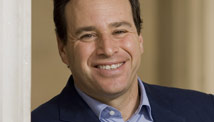Who cares about the young and jobless?

- David Frum: Washington is doing precious little to reduce unemployment
- Frum says Republicans are focused on cutting spending before economy fully recovers
- Democrats are focused on preserving government programs, he says
- Frum: If politicians really cared about jobless, they would have done much more to help
Editor's note: David Frum writes a weekly column for CNN.com. A special assistant to President George W. Bush from 2001 to 2002, he is the author of six books, including "Comeback: Conservatism That Can Win Again," and is the editor of FrumForum.
Washington (CNN) -- Whatever happened to unemployment?
I don't mean the fact of unemployment. We know what's happened to that: nothing. It's as grindingly miserable as ever.
I mean the issue of unemployment. You'd think that nearly 9% unemployment (more than 25% for teenagers, more than 15% for African-Americans) would be kind of a big deal politically. You'd think that citizens would be demanding action, and that politicians would be ferociously competing to offer solutions. But if so, you'd be wrong.
To judge from our politics, you'd almost think we had put the recession behind us.
Quick quiz: What are the major things done in 2010 -- or even proposed -- by any elected official with an aim to bringing unemployment down? It's a short list.
The year's one big job measure was the "quantitative easing" undertaken in November by the Federal Reserve in which it sought to stimulate the economy by expanding the supply of money. But of course the Fed is an unelected body.
The elected branches of government had other priorities. For Democrats, priorities included health care reform, food safety and the repeal of "don't ask, don't tell."
For Republicans, priorities included renewal of the Bush tax cuts and the battle against the Democratic health reform.
But when it came to jobs: Nobody had the mission.
Now in 2011, with a new Congress, still nobody has the mission.
For newly empowered Republicans at the federal and state level, the mission is cutting government spending.
For defensive Democrats, the mission is preserving government programs and public-sector pay.
--David Frum
 Lugar on the budget 'blame game'
Lugar on the budget 'blame game'
 Schumer on negotiating the budget
Schumer on negotiating the budget
 GOP plans to cut spending
GOP plans to cut spending
For the unemployed, the message is: Wait for things to get better gradually.
And for the young especially, the message is: What's the matter with you?
In fact, it's become a minor journalistic genre, the baffled inability by the older generation to comprehend what today's young people face. In August, The New York Times magazine published a long article puzzling over the question: "Why are so many people in their 20s taking so long to grow up?"
Apparently, for bafflingly complex cultural reasons, today's young people are neglecting to accept jobs. Instead, they are floundering around, returning to their parents' homes and postponing serious relationships. How to explain this behavior?
"Cultural expectations might also reinforce the delay. The 'changing timetable for adulthood' has, in many ways, become internalized by 20-somethings and their parents alike. Today young people don't expect to marry until their late 20s, don't expect to start a family until their 30s, don't expect to be on track for a rewarding career until much later than their parents were."
And the boys are the worst, or so argued an essay in The Wall Street Journal this past weekend by Kay Hymowitz, usually a shrewd and lucid observer of the relations between the sexes.
"Relatively affluent, free of family responsibilities, and entertained by an array of media devoted to his every pleasure, the single young man can live in pig heaven -- and often does."
But of course most of today's young are not relatively affluent. Even the college-educated minority face a punishing economic environment. If they don't expect to be "on track for a rewarding career until much later than their parents were," that diminished expectation should tell us less about them than it does about their country.
If anybody cared. Or more exactly, if anybody cared who wielded any political clout.
But what if they did care? Let me be specific -- what if my fellow Republicans had cared? That small cut in the payroll tax that President Barack Obama requested in December? We would have pressed for it in April 2009, in place of the president's own badly designed stimulus. We would have demanded that the president fill vacancies on the Federal Reserve with new governors committed to Milton Friedman's recipe for economic depression: aggressively expansionary monetary policy.
We would have favored a speed-up of necessary infrastructure spending, in place of the president's blue-sky fantasy of a high-speed rail network in the 2020s or 2030s.
We would have made clear that the national debt is an enormously important problem -- but not an immediately urgent problem. Employment must come first; debt reduction must wait until unemployment drops below 8%.
We would not have begrudged the extension of unemployment relief. And we would above all have banged and banged the drum about youth unemployment, so that -- if nothing else -- the hard-hit cohort of 20-somethings would know that somebody in Washington gave a damn about them. It would not have been a miracle. But it would have been better than the shockingly little that was offered instead, by both our disappointing political parties.
The opinions expressed in this column are solely those of David Frum.
